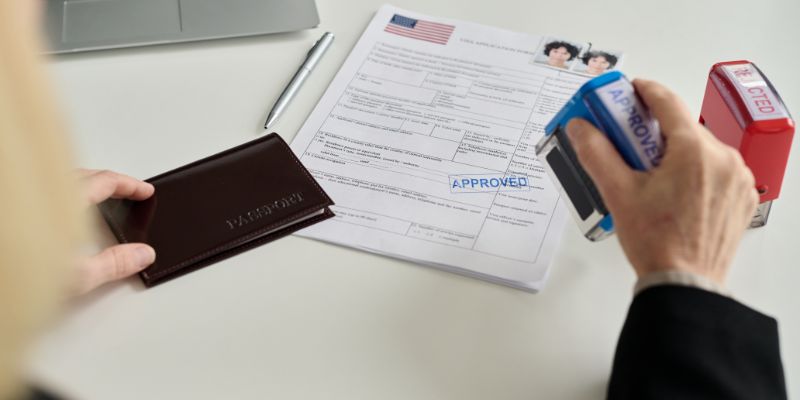Many global citizens immigrate to California due to the richness of the market and the diverse economic opportunities that are available. However, it can be difficult to work through the available employment-based immigration avenues. Therefore, it is critical to have the insight of an experienced California immigration lawyer who can walk you through any of the different processes, as there are several key considerations to keep in mind for employment-based immigration.
Employment-Based Green Cards
If you are looking into getting an employment-based green card or if you are currently going through the application process, then you may likely be feeling overwhelmed and confused. There are many kinds of employment-based green cards, and the application process for all of them is different, based on their requirements and timelines.
EB-1 Employment-Based Green Card
An EB-1 green card is for priority workers, and the following individuals may be eligible to receive such a residence permit:
- Executives and managers who work for multinational corporations
- Researchers and professors who are leaders in their field of work
- Individuals who possess extraordinary capability in athletics, education, the arts and sciences, and business
For the EB-1A category, individuals can self-petition without a job offer, but EB-1B and EB-1C applicants require employer sponsorship. The advantage of such an employment-based green card is that you can self-petition for it.
EB-2 Employment-Based Green Card
An EB-2 employment-based green card, however, requires the sponsorship of a U.S.-based organization or company. The following individuals may be eligible to receive an EB-2 green card:
- Professionals or academics who obtain a position that requires a master’s degree
- Professionals or academics who obtain a position that requires a bachelor’s degree and 5 years of relevant experience
- Individuals who obtain positions of national interest
- Individuals who obtain positions in the arts, sciences, or business that require outstanding abilities
Individuals who qualify for an EB-2 green card are generally known as professionals who have exceptional abilities or advanced degrees. Physicians who have a special waiver can also apply to work in rural or underserved areas in the United States under an EB-2 green card.
EB-3 Employment-Based Green Card
An EB-3 visa is for certain skilled, unskilled, and professional workers who require an employer sponsorship. To apply for this type of work-related green card, the company must go through a labor certificate PERM process. Eligible workers include those who have at least 2 years of relevant experience, those who have less than 2 years of relevant experience, and those who hold a bachelor’s degree.
EB-4 Employment-Based Green Card
Special workers, such as professionals in religion or media, as well as Iraq and Afghanistan nationals who served the U.S. government, may be eligible for an EB-4 visa. Additional special workers who may qualify include certain kinds of employees or retirees, along with their close relatives.
EB-5 Employment-Based Green Card
The EB-5 green card is for investors who plan to invest at least $1.05 million, or $800,000 in a targeted employment area, into a U.S. business that creates jobs. The money must be invested in creating a U.S.-based business that will create at least 10 new jobs.
Key Employment-Based Considerations in California
There are multiple factors that must be taken into account when pursuing legal status through employment in California, including the following:
- Whether there is a need for employer sponsorship
- Whether the employer must complete the PERM process
- Whether the green card category requires certain experience levels or skill sets
- The changing rules and regulations surrounding immigration
While all these factors are important to consider when embarking on your employment-based immigration journey, it’s also important to understand the different types of employment-based green cards and their requirements, as that can most efficiently help you find the one that fits your needs.
FAQs
Q: Do I Need an Employment-Based Immigration Lawyer in California?
A: If you are an individual, family, or business facing immigration-related issues in California, then it is advisable to work with an immigration lawyer. They can analyze the details of your case and determine which avenue is most optimal for you to achieve your immigration goals. They can also help you avoid any minor mistakes or disqualifications that could delay or jeopardize your entire application.
Q: Do I Need a Green Card for Employment in California?
A: If you are a foreign national hoping to work in California, then you will first need to obtain a work-related visa to enter the country. The visa will be allotted for a certain period of time. Based on your eligibility criteria, you may be able to apply for a green card to obtain lawful permanent resident status.
Q: How Long Does It Take to Get an Employment-Based Green Card?
A: The total time to get an employment-based green card varies significantly, typically involving multiple stages like the PERM Labor Certification (which can take 6 months to 1.5 years), followed by the Form I-140 Immigrant Petition for Alien Worker (5-8 months, or 15-45 days with premium processing, plus potential delays from Requests for Evidence), and finally, adjusting status or consular processing.
This last step’s wait time is critically dependent on the Visa Bulletin’s priority dates and your country of origin; while some categories or countries may have immediate visa availability, others, particularly EB-2 and EB-3 for India and China, face severe backlogs that can extend the overall process to several years or even over a decade.
Q: Do I Need a Sponsor for an Employment-Based Green Card in the United States?
A: Not every type of employment-based green card in the United States requires a sponsorship. For example, the EB-1 application requires you to show that you have particular skills that make you outstanding in your field of work, and it can be applied for through self-petitioning. If you are unsure whether your application requires sponsorship or not, and how to obtain it, then it is advised to work with an experienced immigration lawyer.
Get the California Employment-Based Immigration Support That You Need
At US Law Center, our immigration law firm understands the complexity and uncertainty that can come with immigrating to the United States for employment reasons, whether you are alone or with your family. Businesses looking to hire foreign talent can also face legal challenges. The immigration law team at our California-based firm is here to support hardworking individuals who are pursuing the American dream. Get in touch with an immigration attorney from our team today to get started.


